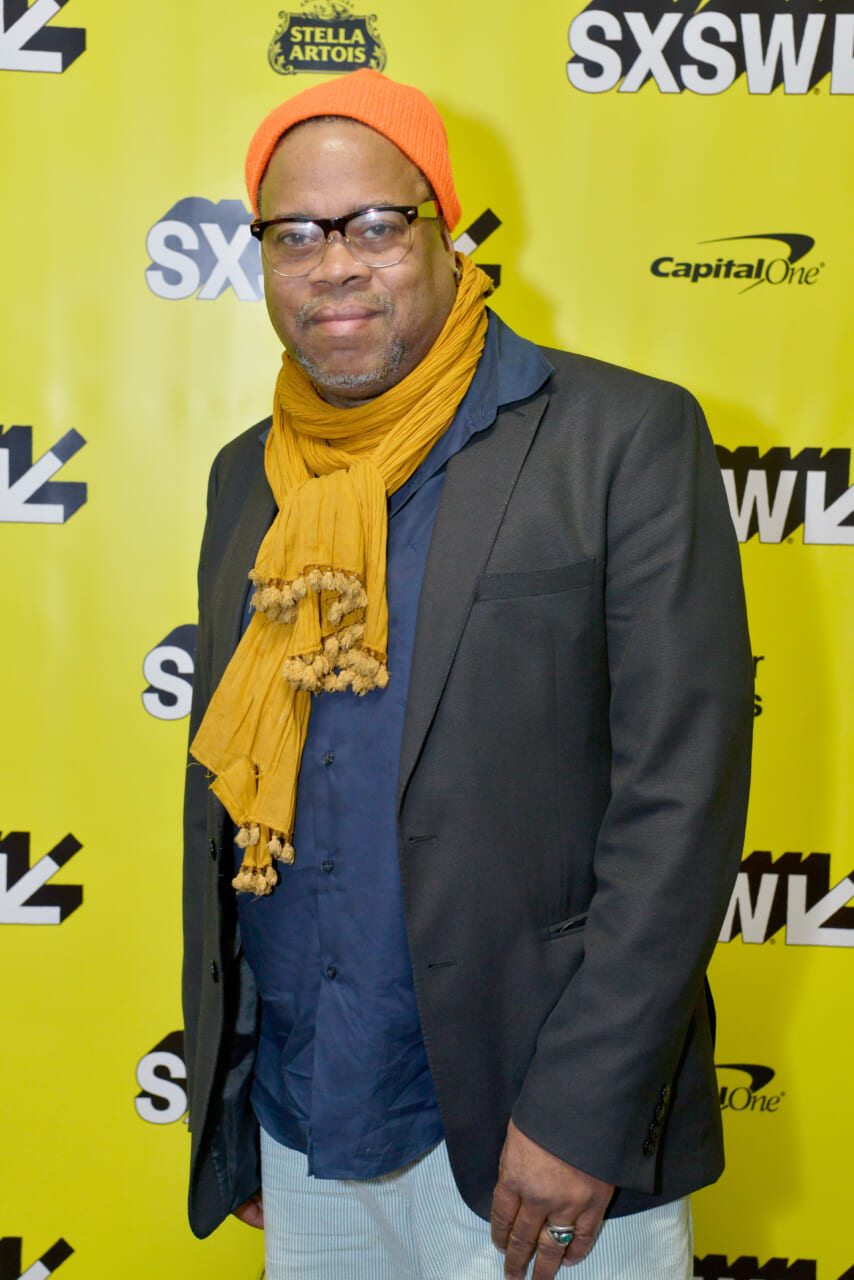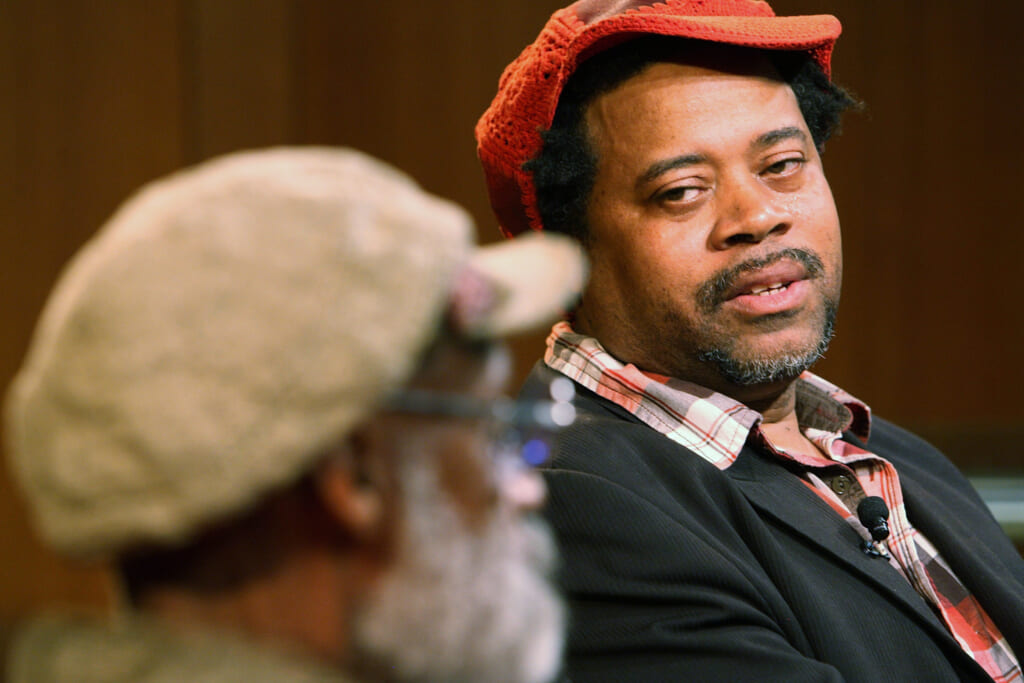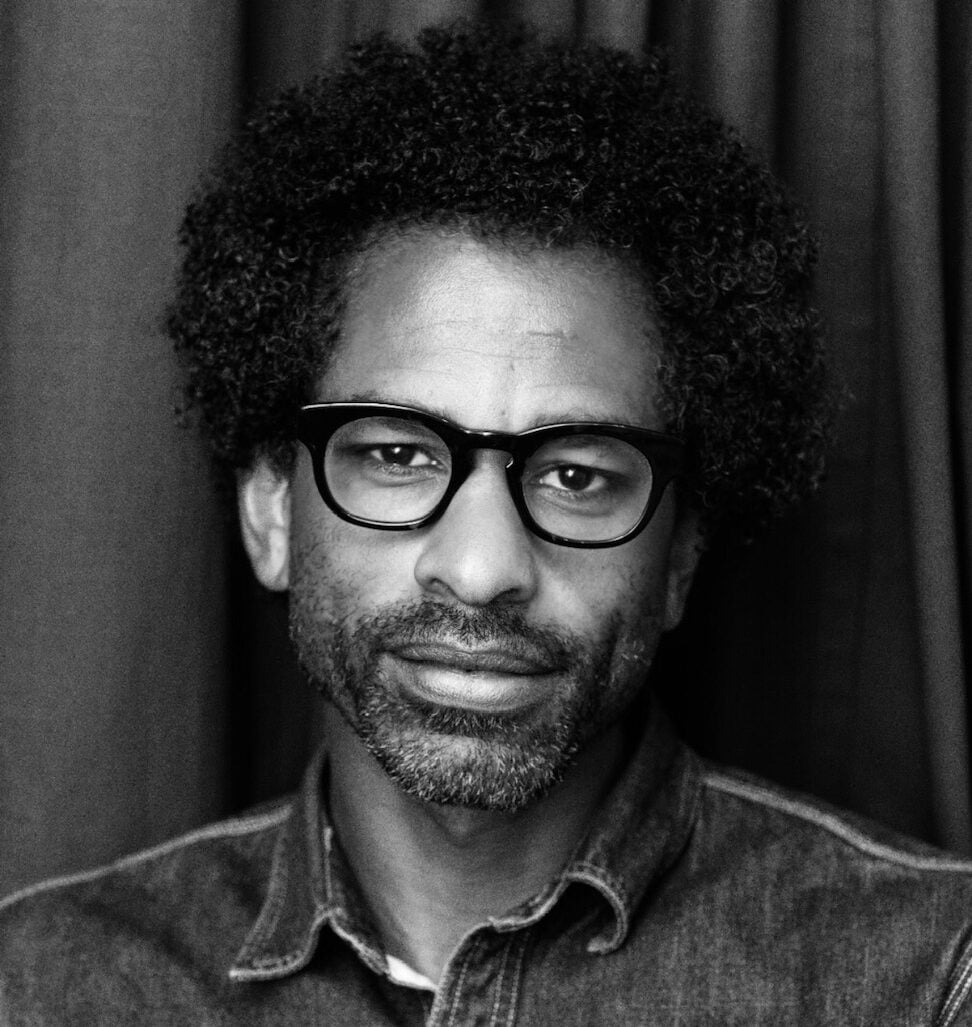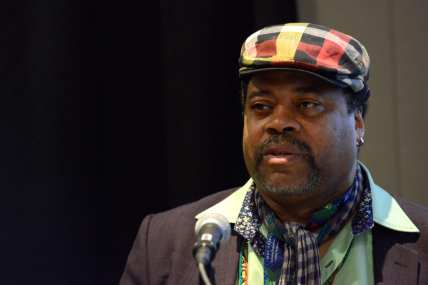Greg Tate was the GOAT of Black cultural writing — we could all learn from his genius
OPINION: Touré reflects on the death of friend and mentor, writer and critic Greg Tate, who he writes was "extremely Black in the corners of his mind."

Greg Tate was a giant. He was a stone cold genius who he tossed off brilliant thoughts as small talk — and at the same time he was a teddy bear. He was humble, sweet, approachable, avuncular.
Tate was the embodiment of cool; I mean, like, he was always chill. Nothing raised his blood pressure. He had a large body and a mind that contained multitudes. He talked like a jazzman would play, he wrote like a funk god would rock, he thought in a way that was soulful and deep and intellectual. He could write about music, film, literature, visual art, comedy, politics, and everything under the sun.
Tate could find a way to analogize Rakim and James Joyce or George Clinton and Romare Bearden or Zora Neale Hurston and Cardi B.
He once wrote, “Pronouncing the death of Miles Davis seems more sillyass than sad. Something on the order of saying you’ve clocked the demise of the blues, the theory of relativity, Ulysses, or any other definitive creation of this century.” That, I think, we can now say about Tate. Saying he’s dead at the young age of 64 seems crazy because he’s one of the definitive creations of the century — a critic whose work makes him as much of an artist as the artists.
I love, also, how his list of the century’s definitive creations casually puts Ulysses, one of the great novels, on par with the theory of relativity, one of the great scientific concepts, and on par with the blues, one of the greatest forms of music ever created. But that list says — without screaming it — a downhome Black invention is just as deep, just as brilliant, and just as important as some of the canonical stuff that White academic eggheads go gaga about.

In that same goodbye to Miles essay Tate also wrote, “A friend of mine once said that you could not love being Black and not love Miles Davis because Miles was the quintessential African American. African American, not as in two halves thrown together, but a recombinant entity born of sperm and egg to produce a third creature more expansive that either.” That was also Tate. A quintessential African American in that he was thinking diasporically and domestically and living in a headspace that combined that two to create a higher plane.
Imagine Wakanda located just outside of Harlem. I mean, the man was extremely Black in the corners of his mind — he had destroyed the last scintilla of a colonized mind a long, long time ago. He was beautiful. In 1986 he wrote, “My mission is clear. The future of Black culture depends that this generation brings forth a worldly-wise and stoopidfresh intelligentsia of radical bups who can get as ignant as James Brown with their Wangs [computers] and stay in the Black. Give me such an army and we’ll be talking total cultural Black rule by the time the eco-system collapses, SDI bottoms out Fort Knox, the Aryan Brotherhood is officially in the White House, and Wall Street is on the moon.”
A sentence like that makes him seem like Negrodamus, I mean Trump already been in the White House and the climate is about to collapse any minute now. But I digress. The man wrote with a sense of mission to inspire sisters and brothers to take the Blackness that a James Brown, a Nina Simone, a Marvin Gaye brings to their art and put that on the page. That’s what Gregory Ironman Tate did and he wanted us all to do that, too.
Tate loved Black culture deeply and never thought that it wasn’t the best thing in the world. He knew how to talk about the artists he loved with a style that elevated his pieces to art — his work was routinely more artful than the work he was writing about. His love of Black culture was deep and it was wide, too — he revered jazz, both classic Miles and electric Miles, he loved rock (he founded the Black Rock Coalition), he lived for the funk (P-Funk was one of his cultural North Stars), and he was an early adopter of hip-hop, too.
He was a Boomer and many in his generation were freaked out when young Gen Xers got on the mic and said ‘F**k singing, I’m here to rhyme.’ Tate was among the first at The Village Voice to pronounce that he loved rap and understood it deeply and put it on par with everything else Black culture had ever birthed. In ’88, when I was still unable to convince my parents that rap was not a fad, Tate wrote:
“If Rakim (pae Miles Davis) is a rap ninja walking on eggshells, then Chuck D is the music’s answer to the sheets of sound oratory [Amiri] Baraka bequeathed to the Black poetry movement for love of Coltrane… And Flavor-Flav is a surefire professor of ign’ance whose mismatch with the mainman derails the tradition of cult-nat loudmouths who don’t know how to laugh at themselves.” In just two sentences he’s referenced hiphop, jazz, poetry, and activism, and given respect to all including Flav, or at least the place that Flav plays on Chuck D’s stage set. Which is not to say Tate just loved everything. He sliced open Michael Jackson in ‘87 when he realized how much plastic surgery the man had had. “There’s a fine line between a Black entertainer who appeals to white people and one who sells out the race in pursuit of white appeal. Berry Gordy, Burgermeister of crossover’s Bauhaus, walked that line with such finesse that some Black folks were shocked to discover via The Big Chill that many whites considered Motown their music. Needless to say, Michael Jackson has crossed so way far over the line that there ain’t no coming back—assuming through surgical transmutation of his face a singular infamy in the annals of tomming.”
In the New York I grew up in, the New York of the ’90s, there was a large crew of Black culture writers who were defining hip-hop in The Village Voice, Rolling Stone, Spin, and other publications. We were a quietly competitive bunch — I know we all wrote with a chip on our shoulder trying to show each other who was the best of the bunch just as the MCs we wrote about were trying to prove that they were the best. But just like jazz or golf or the NBA, we all knew who was the best. Tate was the best. No one questioned it. No one was anywhere close to his spot.
Tate was the smartest, the funkiest, the illest. His sentences were beautiful, his observations were dead on, he was the GOAT. Everyone knew this. The first issue of Vibe opens with an introductory essay from Tate and that was perfect because of course the benediction for the new Black magazine had to be done by Tate — the high priest of the Black writer community.

I don’t remember the moment I met him, it feels like I always knew him, and when I was a baby — I mean when I was in my early 20s — I would call him on a Friday or Saturday night with nothing to say but after a few seconds I was listening to him talk for two or three hours and we never used the word mentorship but that’s what it was. I didn’t really ask him questions, I just listened to him spit his inner monologue, just listened to his ideas about culture and writing and dealing with editors and being Black and moving through life and I just tried to soak in his genius, like, ‘OK this is how a genius thinks — how do you bring a bit of that into your work?’
Years later, I had a house party that he came to and he saw my copy of his collection Flyboy In the Buttermilk and he laughed — it’s dog-eared and highlighted in different colors and the margins are all scribbled in because I have re-read that book hundreds of times at different points in my life looking, again, to understand how a genius approaches things. I read that book the way pro-basketball players watch Michael Jordan or the way Questlove watches old Prince. Flyboy In the Buttermilk is one of the formative texts that birthed me as a writer.
He was a friend, a mentor, a big brother, a man who was critical to the formation of how I thought about writing and about Black culture and I can’t believe I’ll never again talk to him.

Touré is the host of the podcast “Toure Show” and the podcast docuseries “Who Was Prince?” He is also the author of seven books.
Have you subscribed to theGrio podcasts “Dear Culture” or “Acting Up?” Download our newest episodes now!
TheGrio is now on Apple TV, Amazon Fire and Roku. Download theGrio.com today!


